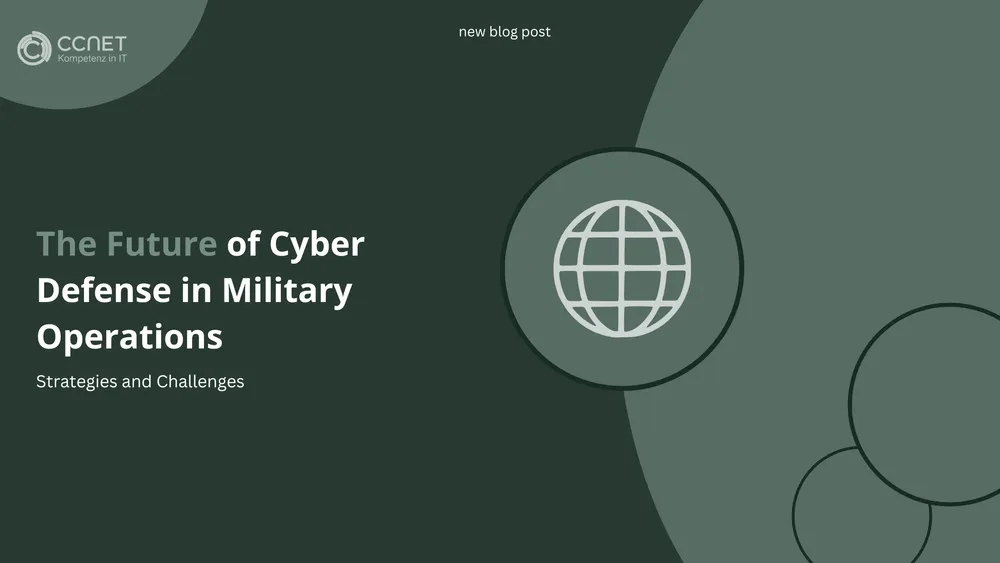
CCNet
Feb 24, 2025 • 3 min read

Regional Cooperation for Enhanced Cybersecurity
Cyber threats do not respect geographical boundaries, making cooperation between countries crucial to building effective cyber defense capabilities. In the Western Hemisphere, many nations have increasingly opted to strengthen their cyber defense capabilities through regional collaboration. This cooperation plays a key role in enhancing cybersecurity and combating cross-border cyber threats. In this blog post, we will explore the importance of collaborative cyber defense in the Western Hemisphere, including the benefits and challenges associated with such cooperation.
The Importance of Regional Cooperation
As digitalization and connectivity have advanced, cyber threats have become more complex and dangerous. No country can afford to tackle these threats alone. Cooperation between nations in the Western Hemisphere allows for the pooling of resources, the exchange of information, and the development of joint strategies to improve responses to cyber threats.
A key aspect of this collaboration is information sharing. Cyber threats evolve quickly, and often, early warning of a new threat can make all the difference. By sharing threat data, countries in the region can detect potential attacks more quickly and proactively defend against them. This exchange of insights into attack patterns and trends helps develop preventative measures and improve overall cyber defense efforts.
Furthermore, regional cooperation allows for joint cyber exercises, where various scenarios are simulated to test and improve the participating countries' resilience to cyberattacks. These exercises not only enhance the technical capabilities of the participating countries but also foster trust and communication between the different national cyber defense organizations.
Regional Initiatives for Cyber Defense
There are several important initiatives in the Western Hemisphere that promote regional cooperation in cyber defense. One such initiative is the Cyber Defense Network, which was established by several countries to create a platform for sharing threat data and best practices. This network enables member states to exchange information about current cyber threats, recognize threats more quickly, and take coordinated countermeasures to enhance security across the region.
Another example is the regular conduct of joint cyber exercises, designed to test the resilience of participating nations against cyberattacks. These exercises improve not only the technical skills of the involved countries but also foster closer cooperation between cybersecurity organizations across borders. In addition, several countries in the region have signed bilateral and multilateral agreements to further deepen their cybersecurity cooperation. These agreements often focus on areas such as threat analysis, cyber training, and the development of shared policies for protecting critical infrastructure.
Challenges of Regional Cyber Cooperation
Despite the many benefits, there are also significant challenges associated with regional cyber cooperation. One of the greatest challenges is the issue of sovereignty. Each country has its own laws, regulations, and strategies when it comes to cybersecurity, making it difficult to unify these diverse approaches into a cohesive regional strategy. Achieving this requires a high degree of compromise and trust between the participating states.
Another challenge is the unequal distribution of resources and capabilities. Not all countries in the Western Hemisphere have the same technical or financial resources to invest in their cyber defense. This can lead to disparities in the effectiveness of regional cooperation, as some countries may not be able to contribute as much as others. To overcome this, wealthier and more technologically advanced countries in the region must provide support and resources to help strengthen cybersecurity across the hemisphere.
A third obstacle is the lack of a unified legal framework for cyber cooperation. While there are international efforts to develop common standards and norms for the cyberspace, many legal questions remain unresolved, particularly when it comes to cross-border collaboration in the prosecution of cybercrime.
The Way Forward: Strengthening Regional Cyber Defense
To further strengthen regional cyber defense in the Western Hemisphere, several steps are needed:
-
Enhanced Information Sharing and Joint Exercises: Countries in the region should continue to enhance information sharing and conduct regular cyber exercises to improve their response capabilities against cyberattacks.
-
Promoting the Education and Training of Cyber Professionals: There is a need to invest more in the education and training of cybersecurity professionals in the region. This can be achieved through knowledge exchange, sharing best practices, and supporting educational initiatives that aim to train more professionals in the field of cybersecurity.
-
Developing a Unified Legal Framework: The countries in the region should work together to develop a unified legal framework for cyber cooperation. This would make cross-border collaboration on cybercrime prosecution easier and ensure that all countries adhere to common standards and norms for cybersecurity.
Conclusion
Collaborative cyber defense in the Western Hemisphere is a key factor in improving regional cybersecurity. Through cooperation, countries in the region can enhance their cyber defense capabilities, optimize information sharing, and increase the resilience of their critical infrastructures. While challenges such as resource inequality, legal hurdles, and sovereignty concerns remain, regional cooperation holds significant potential to strengthen cybersecurity across the hemisphere and create a safer digital future.


